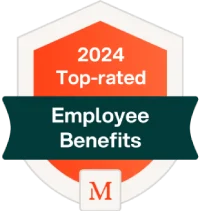IRS to Send ACA Penalty Letters

The Internal Revenue Service (IRS) has indicated that it plans to begin notifying employers by year end of their potential liability for failing to provide sufficient health coverage that is compliant with the Patient Protection and Affordable Care Act (ACA). The agency will begin notifying Applicable Large Employers (ALEs) of their potential liability for the Employer Shared Responsibility Payment (ESRP) if any, for the 2015 calendar year. An ALE would be subject to a penalty, if, for at least one month in the year, one or more of its full-time workers received a premium tax credit through the ACA’s Health Insurance Marketplace, because the ALE did not provide compliant health coverage.
The affected employers should expect to receive a Letter 226-J, a Preliminary Calculation of the Employer Shared Responsibility Payment. This Letter 226-J will be used to notify employers that they may be liable for an ESRP. The determination of whether an ALE may be liable for an ESRP and the amount of the proposed ESRP in Letter 226-J will be based on information from Forms 1094-C and 1095-C filed by the ALE and individual income tax returns filed by the ALE’s employees.
It is important to note that employers will have just 30 days to respond before a demand for payment is made by the IRS. As you may recall, 2015 was a transitional year that defined an ALE as having 100 or more full-time employees, rather than the current 50 or more threshold. For 2015, ALEs were required to “offer minimum essential coverage which also met the minimum value to at least 70% of full-time employees and their eligible dependents”, rather than the current 95% statutory threshold. The penalty for 2015 violations can be quite costly. An ALE could face a $2,000 penalty for every full-time employee, if there was no valid offer of coverage and a $3,000 penalty if the offer was not affordable.
Moving forward, employers should ensure that an administrative process is in place not only to make the necessary payments, but to respond and gather information for the response to the agency. The IRS has not indicated whether an extension to respond will be granted, therefore, a timely, accurate response is necessary, as after 30 days, the IRS will demand payment.
At Innovative, we are committed to keeping you informed about ongoing compliance requirements. Please contact us if you have any questions about the IRS penalty and ACA requirements.
Categories
Archive








